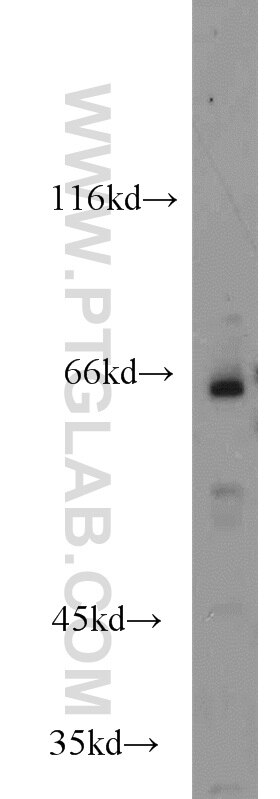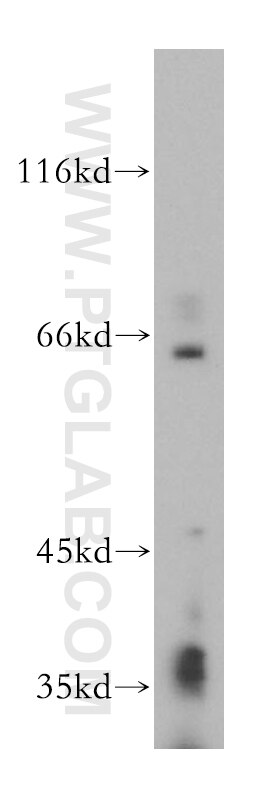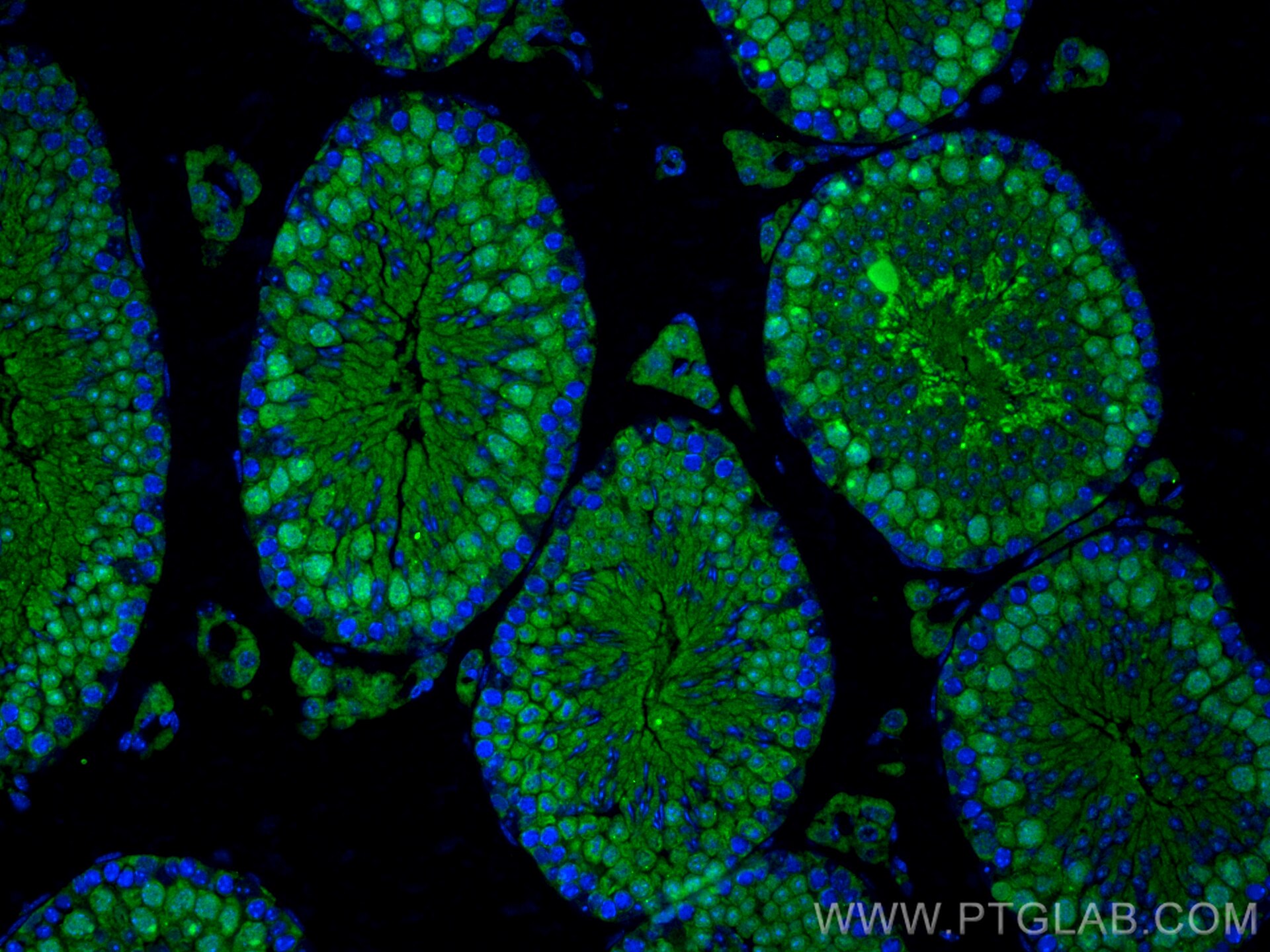HSF5 Polyklonaler Antikörper
HSF5 Polyklonal Antikörper für WB, IF-P, ELISA
Wirt / Isotyp
Kaninchen / IgG
Getestete Reaktivität
human
Anwendung
WB, IF-P, ELISA
Konjugation
Unkonjugiert
Kat-Nr. : 17765-1-AP
Synonyme
Geprüfte Anwendungen
| Erfolgreiche Detektion in WB | Jurkat-Zellen |
| Erfolgreiche Detektion in IF-P | Maushodengewebe |
Empfohlene Verdünnung
| Anwendung | Verdünnung |
|---|---|
| Western Blot (WB) | WB : 1:500-1:3000 |
| Immunfluoreszenz (IF)-P | IF-P : 1:200-1:800 |
| It is recommended that this reagent should be titrated in each testing system to obtain optimal results. | |
| Sample-dependent, check data in validation data gallery | |
Produktinformation
17765-1-AP bindet in WB, IF-P, ELISA HSF5 und zeigt Reaktivität mit human
| Getestete Reaktivität | human |
| Wirt / Isotyp | Kaninchen / IgG |
| Klonalität | Polyklonal |
| Typ | Antikörper |
| Immunogen | HSF5 fusion protein Ag12168 |
| Vollständiger Name | heat shock transcription factor family member 5 |
| Berechnetes Molekulargewicht | 596 aa, 65 kDa |
| Beobachtetes Molekulargewicht | 65 kDa |
| GenBank-Zugangsnummer | BC033017 |
| Gene symbol | HSF5 |
| Gene ID (NCBI) | 124535 |
| Konjugation | Unkonjugiert |
| Form | Liquid |
| Reinigungsmethode | Antigen-Affinitätsreinigung |
| Lagerungspuffer | PBS with 0.02% sodium azide and 50% glycerol |
| Lagerungsbedingungen | Bei -20°C lagern. Nach dem Versand ein Jahr lang stabil Aliquotieren ist bei -20oC Lagerung nicht notwendig. 20ul Größen enthalten 0,1% BSA. |
Hintergrundinformationen
Heat shock transcription factor 5 (HSF5) is a member of the HSF family, which are well-known transcriptional regulators of genes encoding heat shock proteins and other types of proteins and have functions in reproduction, the immune response, and the aging process. HSF5 is a non-canonical HSF that possesses a winged- helix-turn-helix (WHTH)-like DNA-binding domain and is specifically expressed in the testis (PMID: 38958533, PMID: 39162221).
Protokolle
| PRODUKTSPEZIFISCHE PROTOKOLLE | |
|---|---|
| WB protocol for HSF5 antibody 17765-1-AP | Protokoll herunterladen |
| IF protocol for HSF5 antibody 17765-1-AP | Protokoll herunterladen |
| STANDARD-PROTOKOLLE | |
|---|---|
| Klicken Sie hier, um unsere Standardprotokolle anzuzeigen |




